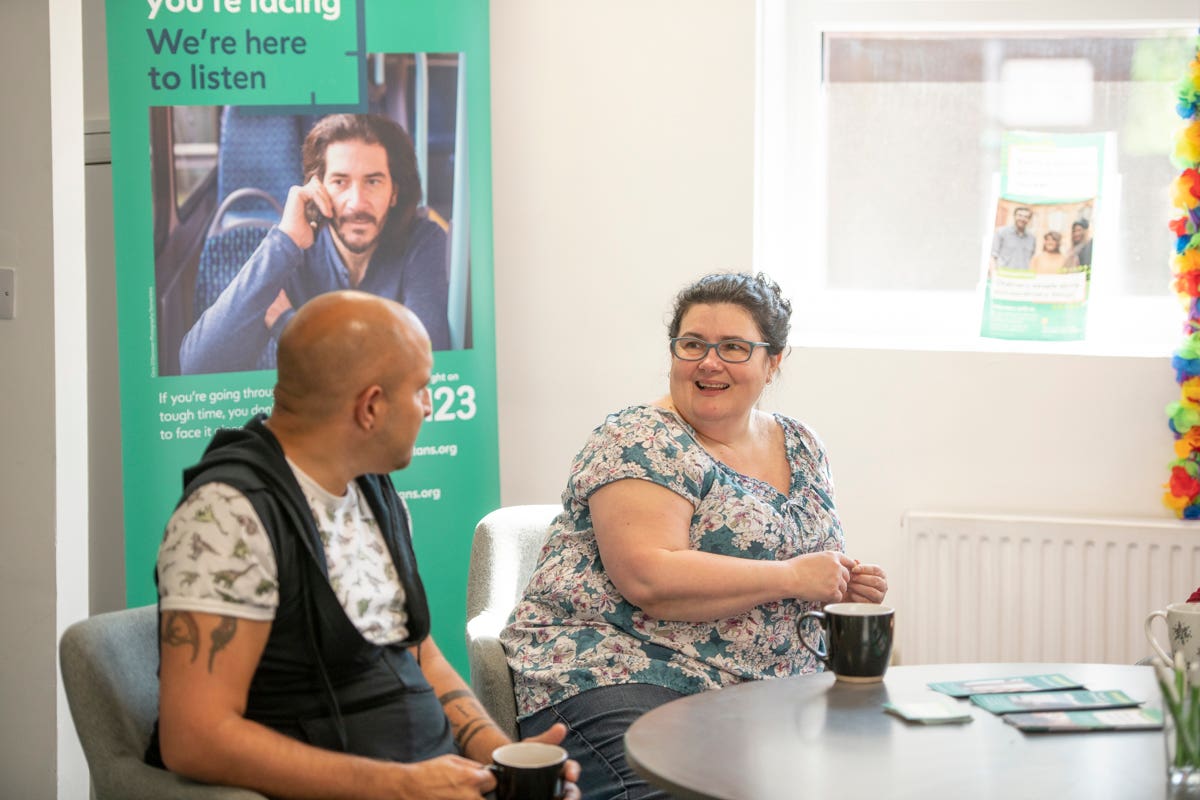Most people unaware how many others have suicidal thoughts – Samaritans survey
Nearly three-quarters of the 2,000 people questioned (71%) in a survey for the charity did not realise how common suicidal thoughts were.

One in five people (20%) have suicidal thoughts during their lifetime but many are unaware how common the experience is, a survey for the Samaritans found.
Nearly three-quarters of the 2,000 people questioned (71%) did not realise how common suicidal thoughts were and less than half (45%) were comfortable discussing the subject.
By contrast, three in four people (74%) said they felt comfortable discussing mental health and wellbeing with friends and family.
Samaritans said the research shows there is still a stigma to discussing suicidal thoughts with nearly a third (31%) of people saying they feared worrying others and more than a quarter (27%) concerned about making someone else feel uncomfortable.
Nearly a quarter (24%) were concerned they would not be understood.
The charity hopes the research will help to break down the stigma and encourage people to open up to someone if they are struggling.
Samaritans, which is charity of the year for the TCS London Marathon on April 21, said the figure means the equivalent of a fifth of participants, around 10,000 people, will experience suicidal thoughts during their lifetime.
The survey found running or walking was the most popular way (53% of respondents) to manage wellbeing.
Samaritans chief executive Julie Bentley said: “One in five of us will struggle with suicidal thoughts in our lifetime but many people face this struggle in silence.
“By highlighting how suicidal thoughts are more common than most of the public expect, we hope to break the stigma surrounding the subject that often prevents people from opening up.
“At Samaritans we know that talking about suicidal thoughts saves lives because people can get the vital support they need.
“We want to start a conversation and encourage everyone to join us on marathon day to support those around them to believe in tomorrow.”
Believe In Tomorrow is the charity’s slogan for this year’s TCS London Marathon campaign which aims to raise funding to ensure the Samaritans can be there for people in need every hour of every day.
Samaritans also wants to raise public awareness and understanding of suicide with resources to help people to feel more confident about having a conversation with someone they are concerned about.
The campaign also offers stories of hope from people who have had suicidal thoughts in the past.
Dan Hodges, 32, from St Helens, Merseyside, did not speak to anyone about how he was feeling before he tried to take his own life on his 26th birthday.
“Mental health wasn’t necessarily something I spoke about or a topic on people’s radar,” he said.
“Especially as I’m a big lad, 6’2, and well-built with rugby league friends.
“I was worried about how others would react if I spoke about it.
“But I was in a rut, I would spend hours lying in my bed just thinking that I didn’t want to be here anymore.
“I contacted Samaritans after I tried to take my own life.
“Having someone to talk to was really comforting. I felt heard. I started to feel stronger and decided that life was for living.”
Mr Hodges, who is running the 2024 TCS London Marathon for Samaritans, added: “I decided to share my story in the hope that it might normalise talking about these things and encourage someone to seek support.
“If I encourage one person, then it’s worth it.
“I’m now a shoulder to cry on among my mates and I couldn’t feel prouder of that.”
Resources to support conversations around suicide can be found at www.samaritans.org/tomorrow
Anyone can contact Samaritans, free, 24/7, on 116 123, email jo@samaritans.org or visit www.samaritans.org
– The Opinium survey for Samaritans was conducted between February 9-13 2024, with a nationally representative sample of 2,001 UK adults.
Bookmark popover
Removed from bookmarks